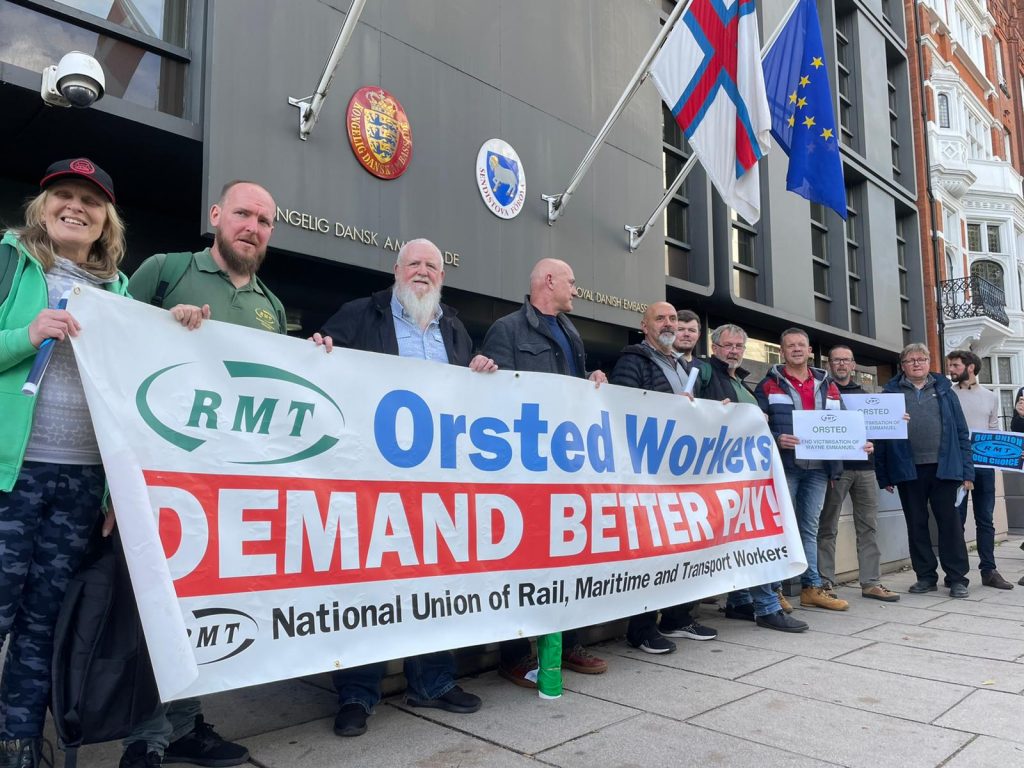Rail workers vote on further six months of walkouts
Rail workers in the RMT union are voting on whether to continue strike action for a further six months.
The ballot closes on 15 November and is part of an ongoing dispute over pay, job security and working conditions.
RMT members at 15 train companies and Network Rail have taken part in eight nationwide strike days since June. No more are currently scheduled.
Network Rail is preparing to make a revised offer to unions.
Meanwhile, at the Trades Union Congress later, union leaders are expected to warn that the anger felt by their members over wages not keeping up with inflation could lead to hundreds of thousands going on strike this winter.
In recent months, rail workers, dock workers, and BT and Royal Mail employees have been involved in industrial action. Nurses, doctors and teachers are also being balloted on whether to join the picket line and this week unions are expected to vote in favour of co-ordinating any strike action.
The government has said it will do whatever it can to minimise disruption. But TUC general secretary Frances O’Grady will say that government plans to make it harder to strike are a “cynical effort to distract from the mess” ministers have caused.
Rail strikes have brought train services across large swathes of Britain to a halt.
The most extensive disruption took place on 1 October, when members of several rail unions including drivers’ union Aslef, all took part in strikes on the same day. Only around 1 in 10 of the usual services ran.
The RMT’s current six-month ‘mandate’ ends late next month. If members vote in favour and there is no breakthrough in talks, strikes could continue into Spring 2023.
RMT general secretary, Mick Lynch told MPs on the Transport Select Committee last week that more money and “a change in attitude and a change of stance” were needed from the government and the rail industry, for a solution to be reached.
There is pressure to cut costs following the impact of the pandemic, when travel patterns changed and the government effectively took control of the railway.
Rail bosses say working practices they regard as outdated need to change, to free up money for pay increases – rather than taxpayers or passengers paying more.
Unions oppose some of these changes. At the committee hearing, Mr Lynch emphasised that negotiations were “all about conditions” not only pay, and unions were still being asked to accept things that they could not.
The RMT rejected its offer from July, which involved a 4% pay rise this year followed by a 4% pay rise in 2023, plus benefits such as highly discounted travel for employees and their families.
Network Rail now intends to press ahead with those changes even if the RMT disagrees, because it says the financial situation is urgent. However it is understood to be taking into account some ideas the union has proposed.
It has been preparing to make a slightly revised offer in this week’s talks.









